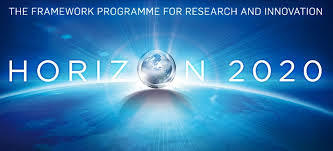Research Participant Portal is your entry point for electronic administration of EU-funded research and innovation projects
Research and publish the best content.
Get Started for FREE
Sign up with Facebook Sign up with X
I don't have a Facebook or a X account
Already have an account: Login
EU GANTS, PROJECT MANAGEMENT
Curated by
nicoleta susanu
 Your new post is loading... Your new post is loading...
 Your new post is loading... Your new post is loading...
|
|











Call H2020 The Young Generation in an Innovative, Inclusive and Sustainable Europe
Topic: The young as a driver of social change
Specific challenge: Meeting the challenges of the ageing population and a transformation into a more sustainable social and economic model, characterised by growing scarcity of resources, greater consideration for the natural environment, living under a shifting climate with uncertain consequences, and more gender equality, necessitates profound changes in the European society concerning our lifestyles, consumption patterns, the way we do business, develop our cities and design our homes, but also the way we build and govern our societies, forge intra- and intergenerational relations and organise our daily lives. These challenges cannot be met without willingness and personal commitment of the individuals who will be forming the core of our future society. The current generations of young people are at the heart of it, as they grow up and get educated in the society of new paradigms where, contrary to the situation their parents and grandparents faced, rapid population ageing is a reality and sustainability is at the top of the agenda, especially with rapid development of emerging economies.
Scope: Research should analyse the norms, values and attitudes of young people in Europe, as well as their expectations and attitudes regarding public policy and organisation of economic, social and private life, including the organisation of cities and space more generally, as well as the types of business ethos and their different roots. This should include young adults of different ages and sexes, and coming from different geographical, socio-economic, ethnic, cultural and religious backgrounds, taking into account both individuals and young families that in particular experience new challenges.
Research should also investigate their attitudes towards a more sustainable socio-economic model and its various features in comparison with older generations, including the evolution of gender relationships. This should take into account the different determinants of youth´s active engagement in developing such model, in order to assess the potential and readiness of young people to be a driver of change as well as their propensity to creative solutions and practices. It should also explore the understanding of young people as a community and identify the opportunities and obstacles that young people see as catalysts and inhibitors of the socio-ecological transition and how they could be addressed by policy in order to foster a sustainable and innovative society in Europe, including through formal and informal education as well as digital and traditional media. Research should examine how change in cultural values could contribute to achieving an inclusive and sustainable society.
Deadline:25/05/2014